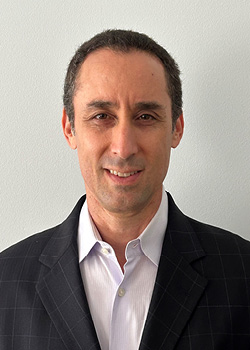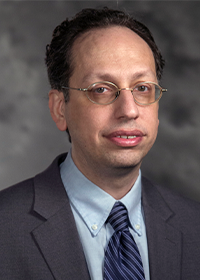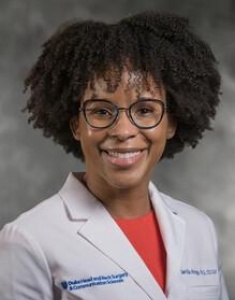Seth M. Cohen, MD, MPH

Dr. Cohen's areas of interest encompass health services research related to voice and swallowing disorders. Dr. Cohen enjoys studying the real world practice patterns involved in the evaluation and management of patients with voice and swallowing disorders and the relationship between practice patterns and the outcomes of patients with these varied conditions.
Steven J. Eliades, MD, PhD

Dr. Eliades’ research focuses on the neural basis of hearing and vocal communication. Communication is a dynamic process that encompasses both production and perception, occurring in an interactive and contextually-dependent fashion. This work encompasses questions of vocal self-monitoring, mechanisms of vocal production and feedback-dependent vocal control, sensory processing in naturalistic listening situations, and social/contextual contributions to hearing and communicative behaviors. The research in his group combines both basic scientific approaches in model organisms and parallel investigations in human subjects, including patients with hearing and communication disorders.
Auditory and Communication Systems Laboratory
Led by Dr. Eliades, the Auditory and Communication Systems Laboratory aims to understand the behavioral and brain mechanisms underlying hearing and vocal communication in both basic science and translational models.
Jamila Minga, PhD

Jamila Minga, PhD, is an Associate Professor in the Department of Head and Neck Surgery & Communication Sciences at Duke University School of Medicine. The Minga Right Hemisphere Communication Lab is dedicated to understanding the communication impairments, particularly those concerning language production, that can occur after right hemisphere stroke. Dr. Minga co-developed the RHDBank database and protocol as a foundation for increasing scientific inquiry and understanding of language production after a right hemisphere stroke. She is dedicated to improving knowledge about hemispheric contributions to language as a basis for engineering population specific diagnostic and treatment approaches that will improve the quality of life of survivors, their loved ones, and caregivers. She aims to accomplish these goals with the support of survivors, community and educational partners.
The Minga Right Hemisphere Communication Lab
The Minga Right Hemisphere Communication Lab is dedicated to understanding the communication impairments, particularly those concerning language production, that can occur following acquired damage to the right hemisphere after stroke.